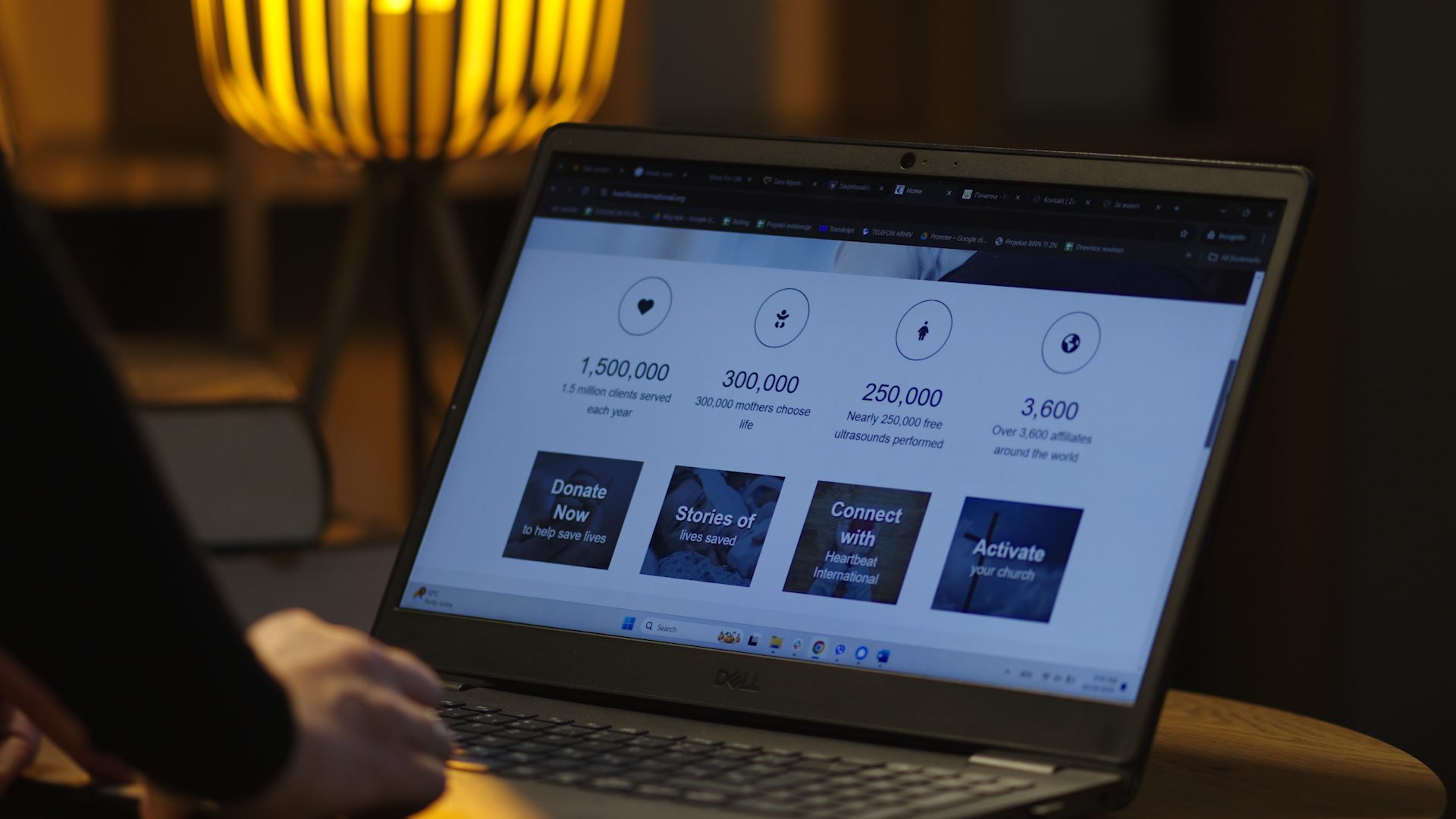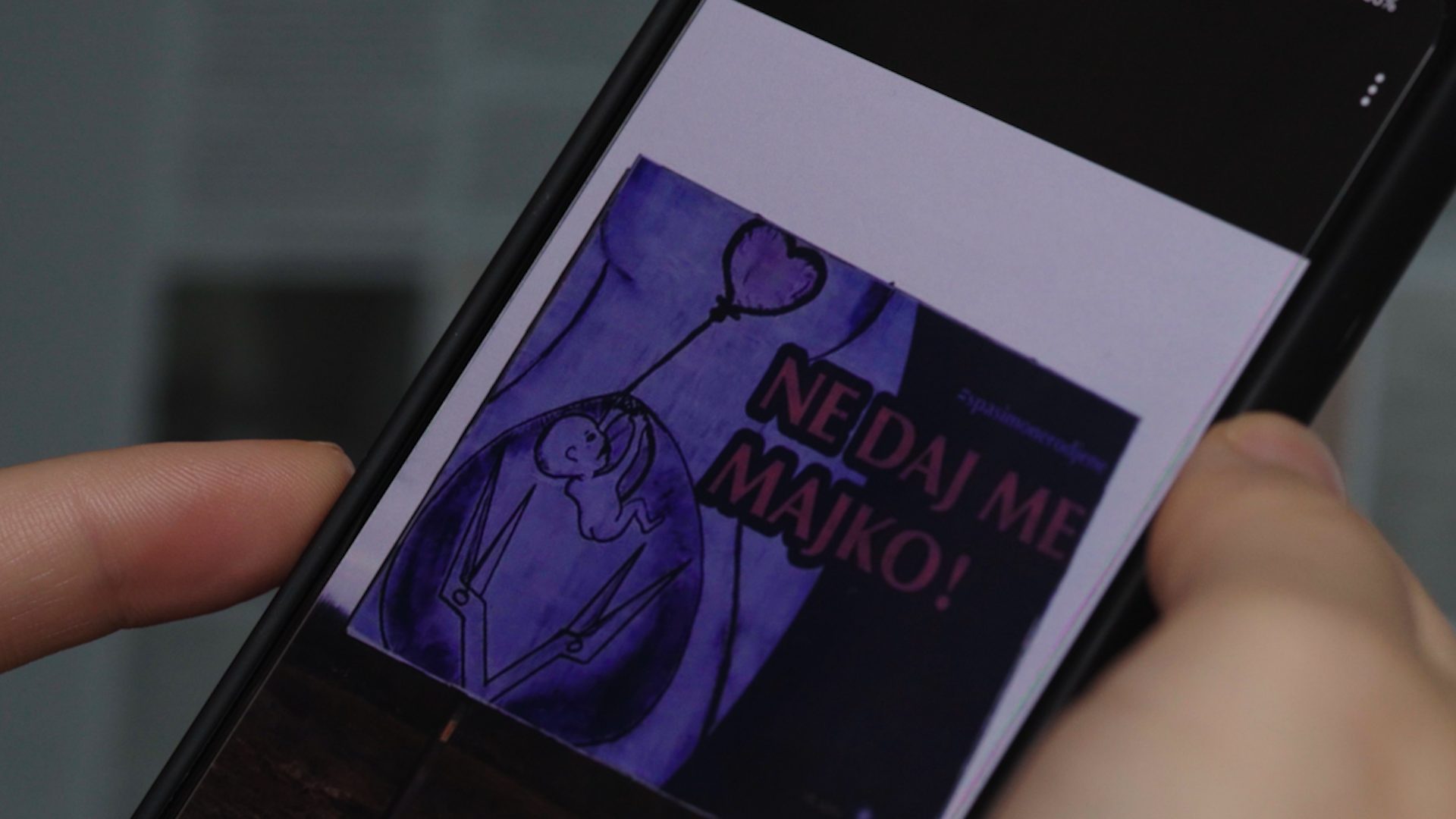This post is also available in: Bosnian
“If you are confused, don’t know what to do, need to talk or get emotional support, we are here for you,” the Sarajevo-based organisation says on its website. “You don’t have to go through this alone. We understand; we don’t judge, and we’re here to help resolve any uncertainty you face.”
Voice for Life markets itself as a counselling centre, a place where women considering abortion can come for advice, without being judged.
“If you are confused, don’t know what to do, need to talk or get emotional support, we are here for you,” the Sarajevo-based organisation says on its website. “You don’t have to go through this alone. We understand; we don’t judge, and we’re here to help resolve any uncertainty you face.”
Under the heading ‘Life After Abortion’, the site quotes three unidentified women talking about their experiences of abortion. If the name ‘Voice for Life’ wasn’t enough of a giveaway, these testimonies make clear the aim of the organisation.
“I feel empty and wonder, what is the point of life?” says one. “I put on a happy face, but inside I want to cry every day,” says another.
Voice for Life is one of more than 3,500 associate members of Heartbeat International, a network of so-called ‘pro-life’ organisations founded in the United States in 1971. Heartbeat International claims to have ‘saved’ more than 300,000 lives, but in May this year it was among 12 organisations sued by New York State Attorney Letitia James for promoting an unproven and potentially unsafe treatment to reverse the effects of the abortion pill.
After BIRN called Voice for Life for comment for this story, all references to Heartbeat International were removed from its website; content claiming to present the scientific facts surrounding abortion was also altered.
“These movements seek to limit women’s rights and introduce control over the female body,” said Selma Hadzihalilovic, coordinator of the Women’s Network of Bosnia and Herzegovina.
Zeljka Umicevic of the Helsinki Parliament of Citizens of Banja Luka, northern Bosnia, said: “One of the ways they operate is to spread disinformation or half-truths to promote retrogressive values directed against women, women’s rights and the rights of marginalised groups. They repeat attitudes that are unfounded and that aim to scare the public and devalue democratic values.”
Heartbeat director Jor-El Godsey, who has visited the region to offer support to local organisations, did not respond to a request to be interviewed.
Emulating America
Anja Mirosavljev Bogdanic, the founder of Voice for Life, is a regular attendee of Heartbeat International conferences.
In 2023, she even took part in a podcast posted on the Heartbeat website, in which she explained the inspiration Voice of Life takes from its US partners.
“We really try to have a similar approach to that of other centres, especially those associated with Heartbeat International, because you have provided us with some great materials and we always use those with clients,” Mirosavljev Bogdanic said. “The trainings we have attended help us a lot.”
“The centres in the US are something we strive for. All the programmes and opportunities that people can get here in the centres for women and children are something that Bosnia and Herzegovina really strives for.”
In May last year, a press release from the annual Heartbeat conference in Alabama, one of the US states where abortion is prohibited by law, quotes Mirosavljev Bogdanic as telling participants: “Women are much more responsive to the online approach. In the past few years, we have saved many babies, thank God.”
A response from the email account of Mirosavljev Bogdanic, who is also a representative of another American ‘pro-life’ organisation, Save One, declined an additional interview for this story, but did express gratitude to Heartbeat International for its financial support for Voice for Life, which according to public data had an income of some 70,000 Bosnian marks in 2023, or roughly 35,000 euros.
In a written response, Voice for Life said: “Most of our clients are women who have had one or more abortions, so we can say that we have equal treatment for women who choose to have an abortion and for those who carry the pregnancy to term.”
“We encourage every woman to make her own decision because she will have to live with the consequences.”
Public funding
 Web page Heartbeat International. Photo: Detektor
Web page Heartbeat International. Photo: Detektor
Three of the organisations identified by BIRN receive financial support from the state.
They include Young Sun (Mlado Sunce), based in Siroki Brijeg near Mostar in southwestern Bosnia, which is led by Darko Bosnjak, a teacher at the local secondary school who ran unsuccessfully for the Cantonal Assembly on behalf of the Croatian Republican Party in 2022.
In 2019, Young Sun was behind dozens of billboards in the area portraying a foetus inside a uterus, holding its own heart with an umbilical cord. Beneath the foetus was a pair of scissors.
“The weakest in our society are children, both those who cry, laugh and play among us, and even more so children who are in their mother’s womb,” Bosnjak told media at the time. “We want to be the voice of those who have no voice.”
According to publicly available finance data in Bosnia’s mainly Bosniak and Croat Federation entity, Young Sun benefitted from 10,500 Bosnian marks (around 5,300 euros) from state coffers in 2023. The precise origin of the donation is not clear, and the City of Siroki Brijeg did not respond to BIRN’s questions. Young Sun declined to be interviewed.
Umicevic, in Banja Luka, said religious influences and the strengthening of patriarchal and so-called ‘traditional’ values over the past several decades had left woman ashamed to talk about abortion or even mention they had been to see a gynaecologist.
“This is even more visible in smaller communities such as Siroki Brijeg, which is strongly influenced by the Catholic Church and its principles because there are no women’s organisations or activists who could be a counterbalance to such a context and who would support other women,” Umicevic said. Abortion, she added, has become a taboo topic.
Put to political use
 A campaign called ‘Ne daj me majko’ (‘Mother, don’t give up on me’). Photo: BIRN BiH
A campaign called ‘Ne daj me majko’ (‘Mother, don’t give up on me’). Photo: BIRN BiH
In Bijeljina, on Bosnia’s eastern border with Serbia, the organisation Parents for Children’s Rights (Roditelji za Prava Djece) frames abortion as a threat to the survival of the Serb people in Bosnia’s Republika Srpska entity.
“Without a responsible pro-natality policy, there will be no Republika Srpska in the future,” the organisation said earlier this year after an event for students in collaboration with the Alliance for Life from Serbia and the support of the Pedagogical Faculty of the University of East Sarajevo.
Parents for Children’s Rights was established after a Facebook group created under the same name during the COVID-19 pandemic, to oppose the imposition on children of social-distancing measures to prevent the spread of the coronavirus.
The group’s posts are often labelled by social media platforms as disinformation or conspiracy theories.
Parents for Children’s Rights was one of 20 signatories to an open letter last year opposing a draft law in the Republika Srpska on the protection of women from domestic violence and other forms of violence. The signatories objected to the way the law framed gender. The draft was subsequently withdrawn.
Umicevic said such organisations are growing in influence because conservative authorities use them to give legitimacy to regressive policies and the increasing prominence of the church. This year, one member of Parents for Children’s Rights spoke out on television against a proposal to define femicide in the Criminal Code, arguing that it was more important to talk about the ‘murder of children’ than the murder of women.
“The consequences of these actions and decisions indeed have a very negative impact on the safety and protection of marginalised groups, on the general climate in terms of accepting other and different people,” Umicevic said.
“But they also bring into question the achieved level of democracy and the achieved legally guaranteed rights of women.”


